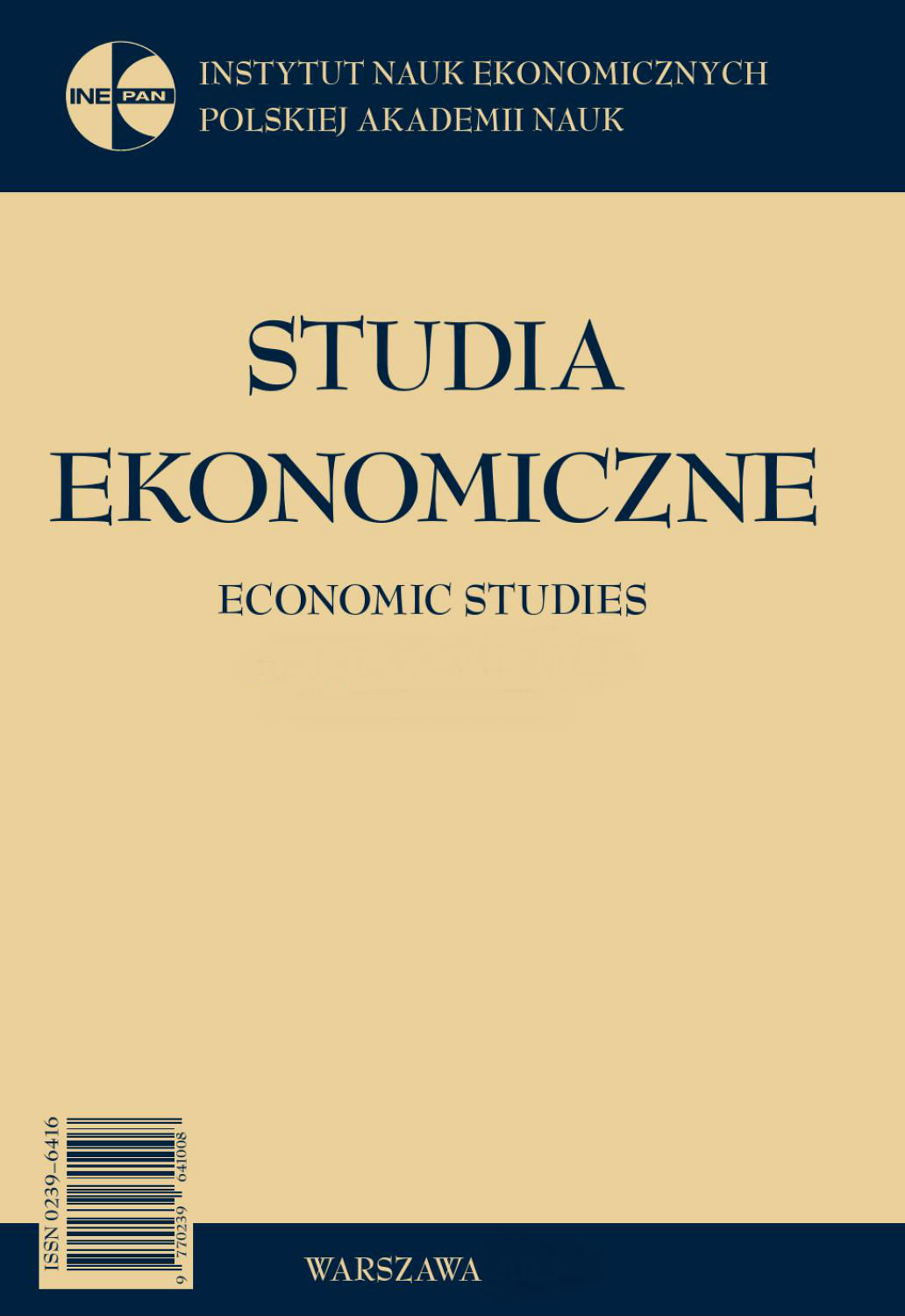Expectations Formation and Endogeneus Fluctuations in Aggregate Demand
Expectations Formation and Endogenous Fluctuations in Aggregate Demand
Author(s): Maciej K. DudekSubject(s): Economy
Published by: Instytut Nauk Ekonomicznych Polskiej Akademii Nauk
Keywords: Business Cycles; Expectations Formation; Costly Information Acquisition
Summary/Abstract: The paper regonizes that expectations and the process of their formation are subject to standard desicion making and are determined as a part of equilibrium. Accordingly, the paper presents a basic framework in which the form of expectation formation is choice variable. At any point in time rational economic agents decide on the basis of the level of utility what expectation formation techynology to use and as a consequence what expectations to hold. As economic decisions are conditioned on expectations holding proper or rational expectations eliminates the possibility of ex ante inefficiences. The choice of expectation formation technology is not trivial asa the peper assumes that information gathering and processing are costly. Consequently, economic agents must make informed decisions with the regard to the quality of expectation formation technologies they wish to use. The paper shows that agents' optimization over expectations not only adds on to realism, but also can carry non trivial implications for the behavior of macroeconomic variables. Specifically, the paper illustrates that endogenous expectation revisions can be a source of permanent oscillations in aggregate demand and can prevent an economy from settling into a asteady state. In addition, the paper quantifies intagible notions such as overheating, over borrowing, and output gap. Finally, the paper shows that active policy mesaures can limit inefficiences resulting from output fluctuations.
Journal: Studia Ekonomiczne
- Issue Year: 2009
- Issue No: 1-2
- Page Range: 7-42
- Page Count: 15
- Language: English

